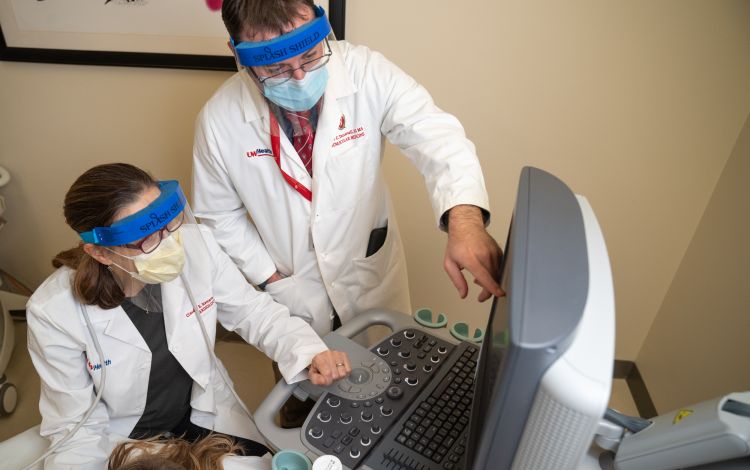Overlap between asthma and cardiovascular disease highlight the need for a targeted, precision approach to treatment

People with asthma are at a higher risk for cardiovascular disease (CVD) than those without asthma due to shared inflammatory pathophysiology leading to an increase in arterial injury. Because these conditions are associated, researchers hope to find a more precise treatment to control asthma and subsequently reduce the risk for CVD.
Matthew Tattersall, DO, MS, assistant professor, Cardiovascular Medicine, and colleagues are performing an ancillary study to the National Heart Lung Blood Institutes’, “Precision Interventions for Severe Asthma” (PrecISE) trial, which is testing six anti-inflammatory agents in people with asthma, with aims to measure arterial health.
“Asthma is a highly prevalent disease, both in Wisconsin and nationwide, and as we know, cardiovascular disease is still the leading cause of death in the state of Wisconsin and across the country,” Dr. Tattersall said.
In Wisconsin, there are over 500,000 people with asthma, and it is becoming more prevalent as the state’s rate of asthma deaths are above national thresholds. CVD is also a concern as it is responsible for one in three deaths in Wisconsin.
Because these two diseases have a lot of inflammatory similarities, it is important to try and untangle the overlap between them. In the UW study, “Vascular Effects of Precision Interventions for Severe Asthma (Pre-CISE),” the researchers are also accounting for different types of asthma, and how they respond to the anti-inflammatory therapies.
“One limitation in prior studies of asthma and cardiovascular disease is that asthma was treated as a homogenous condition not accounting for the various subtypes, and importantly, each subtype has unique inflammatory features and pathophysiology” Dr. Tattersall said.
The first aim of the study is to investigate whether the use of biomarker-guided, novel anti-inflammatory therapeutics improves vascular endothelial function, the precedent to CVD, in severe asthma using ultrasound and serum measures.
The study’s second aim is to determine if these treatments improve novel ultrasound markers of vascular inflammation, an additional obligatory step in CVD.
This research, which began in October 2020, is based on the PrecISE randomized, controlled, cross-over design, where each participant will receive either a treatment, or a placebo for 16 weeks. Then, they will receive the opposite for another 16 weeks, with arterial injury being measured throughout the study to compare the treatment with the placebo.
“Ideally, if there’s an asthma therapy that can both improve asthma control and reduce cardiovascular risk, that’s a win-win, and this could really reduce the overall burden of both of these conditions,” said Dr. Tattersall.
Department of Medicine Mentors:
- Loren Denlinger, MD, PhD, professor, Allergy, Pulmonary and Critical Care Medicine
- Nizar Jarjour, MD, professor, Allergy, Pulmonary and Critical Care Medicine
- James Stein, MD, professor, Cardiovascular Medicine
This study is funded by the Wisconsin Partnership Program, and will run for 24 months.
Banner: Matthew Tattersall, DO, MS, and Claudia Korcarz, DVM, look at arterial injury on an ultrasound. Credit: Clint Thayer/Department of Medicine.